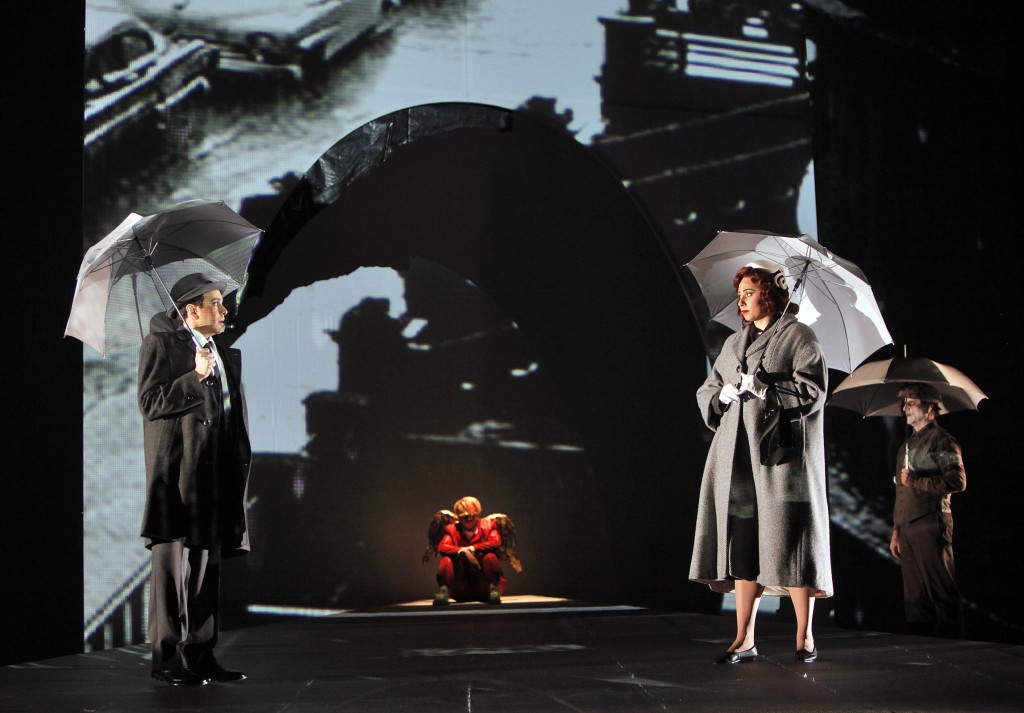
Counsel, call your next witness.
Your honor, Leonard Bernstein calls Claudio Monteverdi to the stand. Or maybe it’s the other way around.
Mr. and Mrs. Scatter went to the opera over the weekend, where Bernstein’s 1952 Trouble in Tahiti followed Monteverdi’s Il Ballo delle Ingrate (The Dance of the Ungrateful Women) from 1608 and Il Combattimento di Tancredi e Clorinda (The Battle of Tancredi & Clorinda) from 1624, and it got Mr. S to thinking about observers. It was pretty hard not to. There they were, he observed, skulking about the stage: gray, grotesque, kind of creepy, very sad. Tormented souls stuck somewhere between the passions of the flesh and the soul-sucking chill of the Underworld.
 Witnesses — those “I alone am escaped to tell you” chroniclers of catastrophe and adventure — are crucial figures in the world of the imagination. From the cautioning choruses of Greek tragedies to Melville’s wide-eyed sailor Ishmael, we’re used to the idea of the witness as a cornerstone of civilized life.
Witnesses — those “I alone am escaped to tell you” chroniclers of catastrophe and adventure — are crucial figures in the world of the imagination. From the cautioning choruses of Greek tragedies to Melville’s wide-eyed sailor Ishmael, we’re used to the idea of the witness as a cornerstone of civilized life.
What really happened? Who saw it? How can we determine the truth? What does it mean?
 From the lofty perch of the present we stand as witnesses to time, looking back on history, rewriting it as we gain new reports from the trenches and rethink what we’ve already seen. We judge, revise, rejudge: In the courtroom of culture, the jury never rests.
From the lofty perch of the present we stand as witnesses to time, looking back on history, rewriting it as we gain new reports from the trenches and rethink what we’ve already seen. We judge, revise, rejudge: In the courtroom of culture, the jury never rests.
But what if the past looks forward and witnesses us? What does it see? What can it mean?
That’s what happens in Portland Opera‘s new production of these three short works, which span roughly three and a half centuries in their composition and many more — back to the cavortings of the classical Greek gods — in their subject matter. Stage director Nicholas Muni, whose last visit here resulted in a hair-raisingly good version of Benjamin Britten‘s The Turn of the Screw, has linked these seemingly alien pieces audaciously in time and space, rendering them chapters in a neverending story of misbegotten love. And those gray grotesque observers are the key.
David Stabler and Mr. Mead have filed insightful reviews (with very different conclusions), and Mr. Scatter does not wish to add a formal review to territory they’ve covered well. But he does want to think a little about those witnesses.
Continue reading Trouble in Tahiti: Witness for the persecution